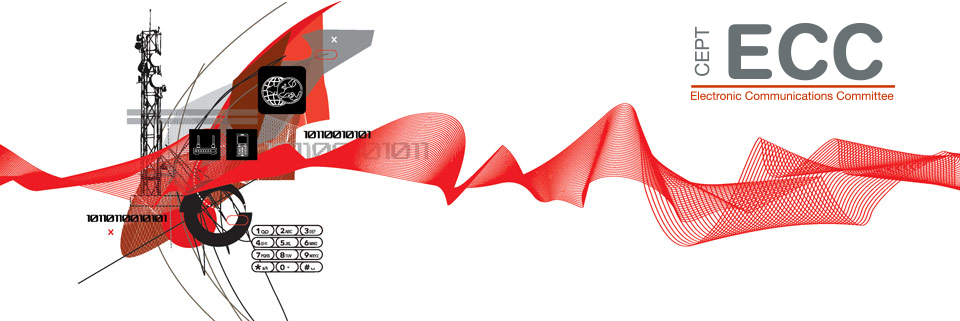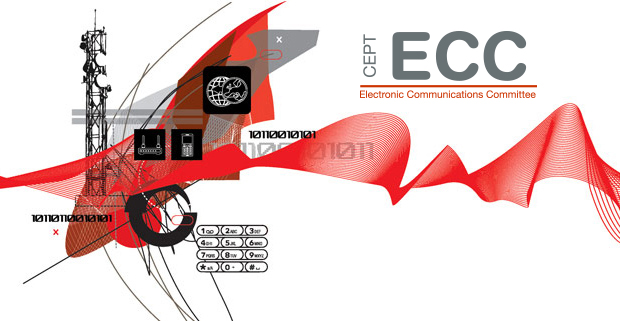ECC Newsletter August 2020
Electronic Communications Committee adopts new strategic plan
Recognising an ever-growing demand for electronic communications services, the ECC Strategic Plan 2020-2025 looks to key issues for the sector over the next five years.
The Electronic Communications Committee (ECC) has adopted a new Strategic Plan for the period 2020-2025. This plan, which was accepted at the Plenary meeting in July, builds on earlier versions which covered the periods 2010-2015 and 2015-2020. It provides a high-level and easily accessible overview of the anticipated themes and key issues for the ECC over the next five years.
The new ECC Strategic Plan recognises the rapidly increasing demand for electronic communications services. It notes that new and diverse applications and services are constantly being developed which require access to one or more of the scarce resources managed under the guidance of ECC policies and regulatory measures. It sets out the primary mission of the ECC as enabling the efficient, effective and harmonised use of the radio spectrum, satellite orbits and numbering resources across Europe.
To achieve this mission, the Strategic Plan explains that the ECC will develop common proposals, policies and regulations consistent with cross-cutting and strategic principles as follows:
- The benefits that spectrum sharing, where technically feasible, can deliver in terms of facilitating effective and efficient use of spectrum, and promoting innovation in both licensed and unlicensed bands. The ECC will consider opportunities to promote spectrum sharing through its technical and regulatory work, including when undertaking compatibility analyses and defining coexistence conditions.
- The need to define appropriate parameters for both transmitters and receivers in co-channel bandwidth and in adjacent frequency bands. The ECC is committed to developing and/or updating relevant ECC Recommendations on appropriate characterisations of both transmitters and receivers and will intensify its co-operation with ETSI, Europe’s leading standards development organisation in this field, in order to support efficient use of spectrum and spectrum sharing.
- The need to balance the diverse interests of all the different users of spectrum. The ECC will establish technical co-existence conditions for access to spectrum for new technologies and services – balancing the interests of incumbents and new entrants as appropriate – in order to facilitate optimal use of the spectrum and orbital resource.
- Ensuring non-discriminatory access to numbering and network resources, for both traditional operators and new entrants. The ECC will develop harmonised policies that promote non-discriminatory and technology-neutral access to scarce numbering resources. This will promote competition, foster innovation, ensure consumer protection and facilitate the continued evolution to high capacity networks of the future.
These principles will guide the work of the ECC over the next five years. The Strategic Plan also recognises that new technologies – including Artificial Intelligence and Blockchain – are emerging, as well as a range of other factors, which may influence how it manages the spectrum and numbering resource in the future. This includes issues related to global connectivity, cyber security, end-user protection, public safety and environmental considerations, including climate change.
A detailed description of the specific work items being addressed by the ECC is set out in the ECC Work Programme. While this list of work items is long and diverse, the ECC has identified some topics which are particularly important and which embrace much of its key work in the medium term. These are:
- Reviewing future use of the UHF band (470-960 MHz);
- Wireless broadband and connectivity;
- Issues relating to general authorisations and licence-exempt use of spectrum;
- New initiatives and innovations, such as next generation satellite systems, which require technical and/or regulatory conditions;
- New business models, applications and services which emerge and require that sufficient numbering resources are made available;
- Number portability, ease of switching, end-user protection, public safety and building trust in electronic communications.
The ECC Strategic Plan sets out how the ECC will work collaboratively with a range of partner organisations – including the European Commission, ETSI and the International Telecommunication Union (ITU)– in taking forward its work and sharing best practice and knowledge. It also explains how the ECC will, with support from the European Communications Office, work more broadly with stakeholders in order to communicate and publicise ongoing activities. This includes conducting public consultations on all draft deliverables, organising workshops and exploring relationships with universities, scientific institutes and European research programmes, as well as maintaining and developing the EFIS database.
The ECC Strategic Plan is expected to be sufficiently high-level to remain relevant as technologies and markets develop over the next five years. It will, however, be subject to a mid-term review which will provide an opportunity to track progress against the plan and consider any amendments that may be necessary to ensure its continued relevance and usefulness.
The new ECC Strategic Plan is available at https://cept.org/ecc/ecc-strategic-plan.
Chris Woolford
ECC Chairman



